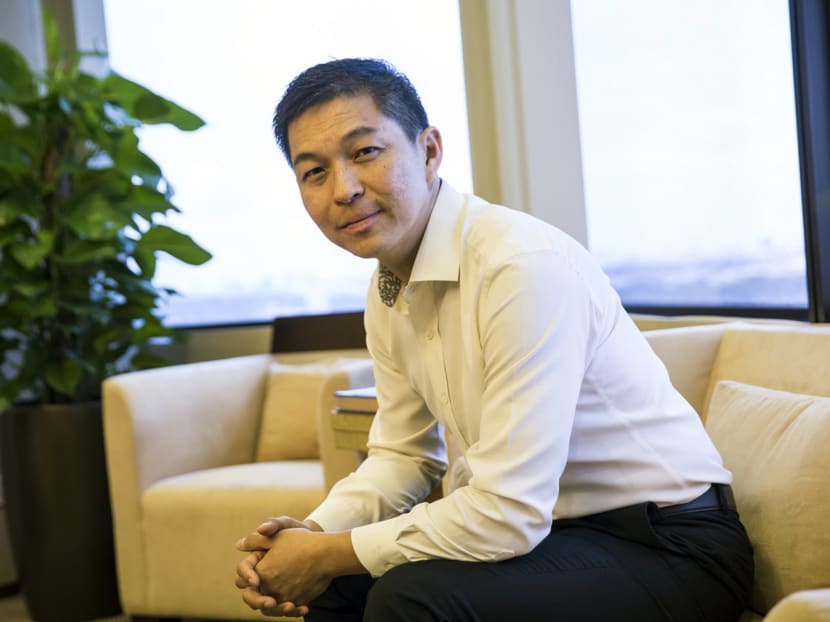Social media attacks on MSF officers prevent them from helping those in need
SINGAPORE — Social and Family Development Minister Tan Chuan-Jin has spoken out against attempts by individuals to malign social workers and officers from his ministry on social media, including posting videos and the identity card numbers of government workers, and sharing one-sided accounts of cases on the Internet.

Social and Family Development Minister Tan Chuan-Jin said that while the majority of people who seek help are ‘genuinely in need of some form of support’, there will be those who try to ‘game the system’. PHOTO: Nuria Ling
SINGAPORE — Social and Family Development Minister Tan Chuan-Jin has spoken out against attempts by individuals to malign social workers and officers from his ministry on social media, including posting videos and the identity card numbers of government workers, and sharing one-sided accounts of cases on the Internet.
Citing several examples, Mr Tan pointed out that these actions would not only hinder the work of the Ministry of Social and Family Development (MSF) staff and affect them personally, but also have an impact on the course of justice. “Our officers are incredibly passionate about what they are trying to do and yet at the same time, (they are) being assaulted online because individuals with their (own) perspectives decide to use that platform to attack our officers,” Mr Tan said in a wide-ranging interview with TODAY last week.
Appealing for greater public understanding of the challenges faced by MSF staff, he stressed that it is very difficult to assess the merits of certain cases. To protect the parties involved, the ministry is also unable to share a lot of details in many instances. “One snapshot story doesn’t really tell the whole picture,” Mr Tan pointed out. “Certainly seasoned social workers will tell you that things are not always so straightforward, (and) there are a lot of sub-stories that don’t get surfaced.”
During the interview, Mr Tan noted that Singapore could enter a protracted period of economic uncertainty, and assured that the Government stands ready to provide financial assistance for a longer-than-usual period and to exercise flexibility in handling requests for help. He also reflected on his tenure, stressing his belief in intervening early when it comes to helping vulnerable and needy families.
But even as MSF officers work to deliver help, they are sometimes subject to online attacks and even physical abuse.
For instance, in December 2015, an exchange between a man and a Social Service Office (SSO) officer was captured on camera and uploaded online after the former was upset that there would be a delay in receiving his financial assistance.
Mr Tan said: “The whole objective of doing that and putting it online was to basically cast aspersions on our officers, when actually what our officer was trying to do was to increase help.” He noted that at that point in time, his officers had already reviewed the case and needed time to process the application.
In February last year, a 56-year-old man was jailed for punching an MSF officer 11 times on her face and neck. He had become aggressive while the officer was interviewing him over his application for financial assistance.
Another case saw a foster family, thinking that the child was better off with them than in the care of the birth parents, put the names and IC numbers of the child protection officers online to “direct public dissatisfaction and anger towards” the MSF staff.
“But the reality is that the situation is not quite what they paint … It is wholly inappropriate to let the public judge (when) I cannot put the whole range of issues and details out there,” Mr Tan said. Similarly, public spotlight and pressure could also backfire in situations where the cases may not be genuine.
While the majority of people who seek help at the SSOs are “genuinely in need of some form of support”, Mr Tan noted that there will be those who try to “game the system” by, for example, under-declaring their income or providing false information about their situation.
“They are very savvy … they will tell a story that sometimes, I myself am not able to ascertain completely. It’s only subsequently, when other information trickles in, then you realise that their situation is not quite as dire as they make it out to be,” he said.
While the MSF officers are trained to assess the needs of those who seek help, dealing with these cases takes time and comes at the expense of genuine cases. “It’s a real struggle, in many cases, especially when the public comes on board and starts judging the agencies and officers who are not assisting, and then we have to look at that particular case and re-investigate it,” he said.
He added, “Individuals need to realise that they can’t just take this approach because it is really affecting the course of justice. It is also affecting the way in which we are able to carry out our responsibilities.”






